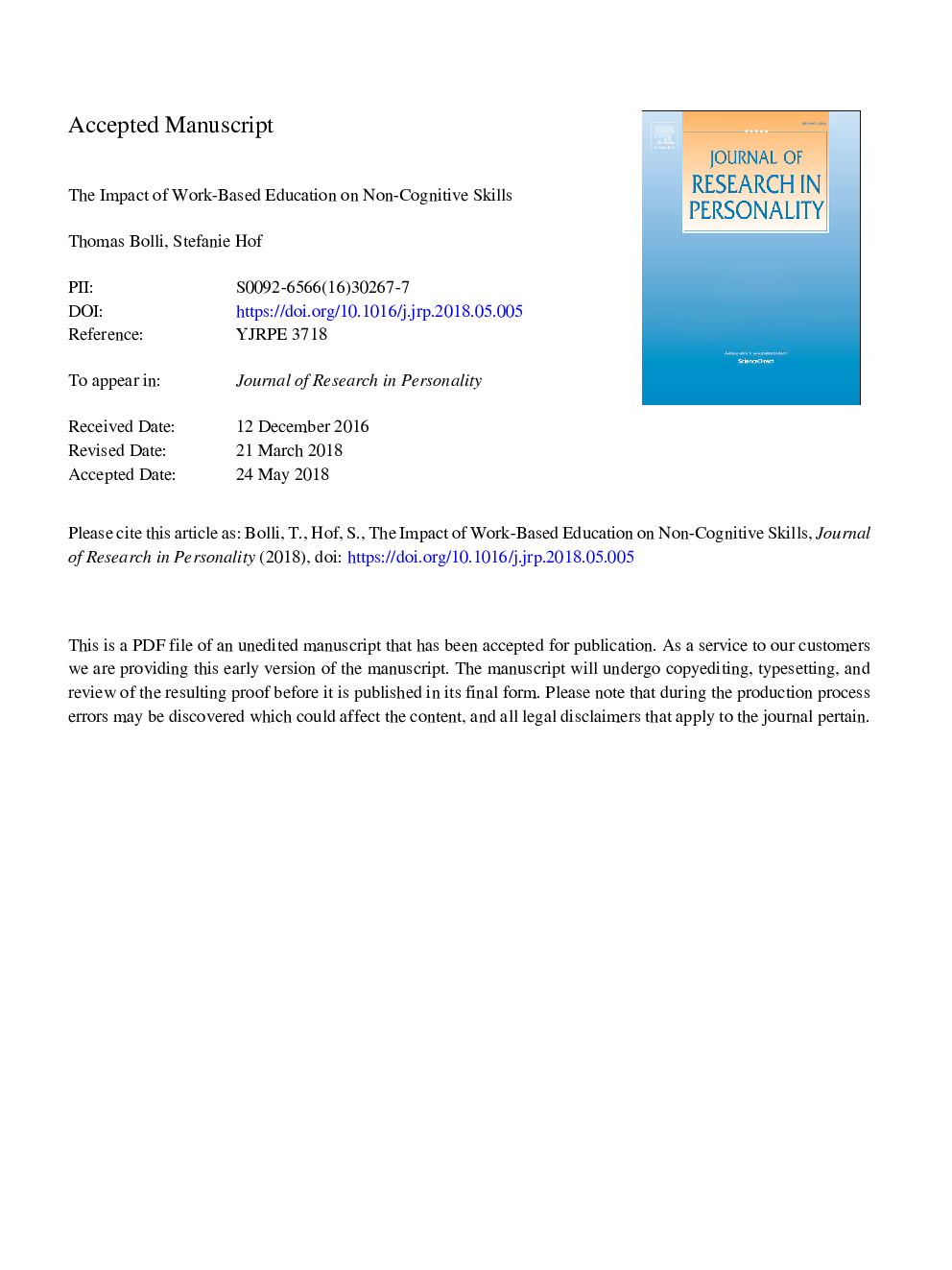| Article ID | Journal | Published Year | Pages | File Type |
|---|---|---|---|---|
| 7326290 | Journal of Research in Personality | 2018 | 35 Pages |
Abstract
A growing literature establishes that non-cognitive skills substantially affect life outcomes. However, little is known about the impact of education on non-cognitive skills. Hence, this paper analyzes how work-based upper secondary education compared to school-based upper secondary education affects coping strategies, namely task-centered, emotion-centered and avoidance-centered coping. Exploiting longitudinal data in addition to historical differences in the relative weight of school- and work-based education across cantons in 1980, we find that work-based upper secondary education permanently decreases emotion-centered coping. While avoidance-centered coping also decreases in the long run, we find little evidence that work-based education affects task-centered coping.
Related Topics
Life Sciences
Neuroscience
Behavioral Neuroscience
Authors
Thomas Bolli, Stefanie Hof,
